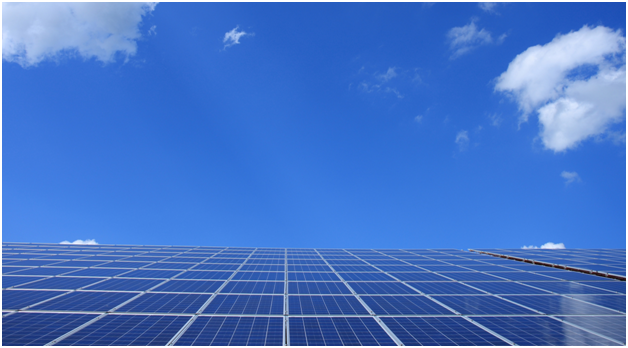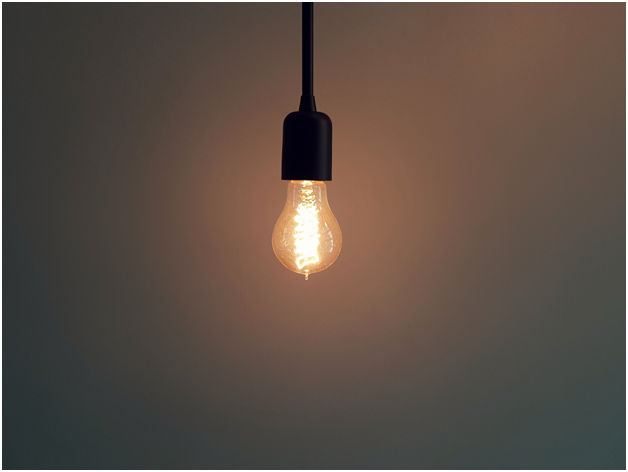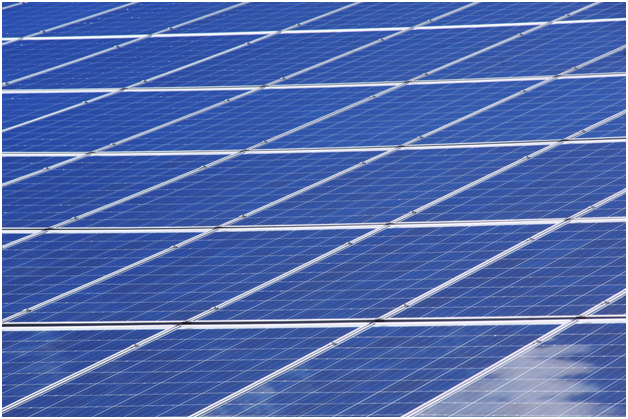Solar Panel Cable and Photovoltaic Systems: The Benefits of Solar Energy
31st Jul 2020

You’ve probably heard a lot of the buzz surrounding solar energy by this point. In fact, there’s a good chance you are tiresomely aware of it and are fending off phone calls on the daily from companies that promise to install an array for your home for free.
If you’re looking for more information on these systems, you’re in luck, because in this article we’re going to give you a bit of background on solar power, how it works, and why it has become so popular. We’re also going to get into what makes it a viable solution for some people, as well as parsing some of the benefits it can have for some homes.
Depending on the report you read you may see that only a very tiny percentage of people in the United States actually use solar power, but that the cost of accommodating it has been dropping and that it is also the fastest growing energy source in the world. It has some untapped potential, but first, to understand these benefits, we have to understand the basis of solar energy and how a solar array works.
What Is Solar Power?
In the simplest of terms, solar power is harnessing power from the sunlight that otherwise would go to waste. Solar panel arrays are designed to capture some of the energy of sunlight as electricity and then store it so that it can be used later.
Solar panel arrays are made up of many solar (or photovoltaic) panels, which themselves are made up of solar, or more commonly, photovoltaic cells. These cells and panels are wired together in order to make up an array to capitalize on the largest total amount of solar energy that can be captured. Solar panel cable, also called photovoltaic cable, is used to connect the panels in these arrays to each other and to the other components of a solar array. Solar panel cable is not uncustomarily distinct from most other forms of conductors, except that it typically is possessed of a number of features that suit it well to the environment in which it typically works. Solar panel cable tends to be very tough and well insulated, and its insulation is usually highly resistant to temperature, weather and ultraviolet radiation. Since these cables sometimes spend their useful lifetimes baking in the sun and laying under snow and rain, they need to be particularly tough.
The photovoltaic cells themselves are made of semiconductor materials that have the dual properties of metals and of insulating materials - hence the term, ‘semiconductor.’ There are a number of materials from which photovoltaic cells are manufactured, but the most common of these is silicon. Silicon is typically used in this industry for the production of these cells because the material is abundant, cheap, highly efficient and lasts a long time. Chances are, if you are looking at a solar array, those cells are made from silicon semiconductors.
When a photon from the light of the sun comes through the atmosphere and strikes a photovoltaic cell, it can knock an electron loose from the orbit of its atom. Once the electrons are free, they flow in one direction along the semiconductor towards the positively charged area that draws them. Because the solar panels generate a flow of electrons in one direction, this can be considered direct current electricity, also known as DC.
In the United States, however, our electrical grid and systems run off of alternating current, or AC, electricity, which has directional flow that is capable of being reversed. Therefore, solar arrays contain components known as solar inverters that ‘transform’ the direct current electricity produced into alternating current electricity. The inverter, however, does more than just convert the DC current into AC current. It also provides some security features and regulates the voltage and current of the system in which it operates.
Is Solar Power Worth It?
In the last section we offered a fairly brief overview of the operation of a solar system and how all of the components interact and communicate together. What you might be wanting to know, and what might be significantly more valuable to you, is if the investment in solar power is worth it to you, given your unique situation.
Unfortunately, this is not a simple yes or no question. Some people are willing to invest in solar panels simply because it can augment their usage of power and help them cut costs, but in many situations, it will not be practical to power the entire home and all domestic functions with the electricity generated.
If your climate offers a lot of sun, such as what you might expect from some areas in the southwest, then solar power might be a viable solution for you. At the same time, if you live in an area that gets a lot of fog and mist or doesn’t see enough sunlight overall, then it just might not be worth your while.
At the same time, if your aim is just to supplement your use of electricity by producing some solar energy of your own, then you might be able to make ends meet, especially if your intention isn’t to power your entire domicile.
The long and short of it is that you might not be able to come up with the answer on your own. If you partner with a solar power company to audit your home, they may be able to shed some light on the matter. At the same time, keep in mind that they have a vested interest in selling solar arrays, so you might not want to go off of the information that they provide alone. Do some of your research on the area in which you live and perhaps work with an electrical engineer or another specialist to audit your home’s use of energy as well as the climate and you may be able to come by some more valuable information.
Potential Benefits of Solar Energy

Although there is no easy answer to the question of “should you invest in solar energy?” there are some benefits that will come along with a solar array, if it has been determined that it was a good investment for your home. If you ask any homeowner who uses solar power or has invested in a solar array, chances are you’re going to hear one or several of these answers as their reason behind the move.
Energy Savings
This is probably the holy grail of the benefits of solar energy, and while there might not be a figure associated with this claim, it’s likely that the majority of people who invest in solar power do so in order to realize energy savings by using less electricity.
Your average homeowner is probably looking at a usage of electricity that rings to the tune of several hundred dollars per month. That’s an expense that is more or less inescapable and most people would jump at the chance to slash that cost. Moreover, the need for power is basically unavoidable. Just about everything (a hyperbole) in the modern American home is powered by electricity, from handheld devices to appliances to the lighting in the home. Even cars require electricity, and although they typically generate electricity through gasoline, when they die, you need to plug them into a charger to bring them back to life. The point is, and this can’t be stated clearly enough, Americans run on electricity and emergency expenditures run high.
If you can power your home with solar power, then you can be on your way to energy independence and will never have to worry about high electricity bills again. In fact, due to a process known as net metering, you don’t even have to worry about producing excess energy, if that were to occur. In the event that you produce too much electricity, then the power gets sent back into the grid where other customers on the grid can use it. If you produce enough electricity that power your own home and then some excess that gets fed back into the grid, the utility company that provides power to that portion of the grid will likely give you an energy credit. Think of it this way; not only can you possibly cut costs, but you might even be able to make yourself some money.
Increase the Value of Your Home
A statement like this really depends on the prevailing market conditions and the buyers with which you might be involved, but all things being equal, if you provide your home with an avenue for energy independence, that is a built-in value add. It’s like advertising a rebate on the house in the form of lower energy expenses to potential buyers.
Adding a solar array to your home has the potential to increase the value of your home not only for the fact that it can save you and potential buyers on energy expenses, but also for the fact that to the right buyer, it might represent an investment that they themselves will not have to make. All of that adds value to your home and can result in better bargaining power if you ever do go to sell your home.
There’s something else to calculate into this. Whereas cosmetic features of your home can result in a bidding war, the value of solar panels is not really subject to debate. They don’t really matter in a functional or aesthetic sense, so they can’t really interfere with the tastes of a buyer. What they will do, unilaterally, is lower the buyer’s energy costs, which is something that just about anyone can appreciate.
Tax Credit
Depending on how much you paid for your solar array, and potentially any other costs of operation, you can get a federal tax credit if you have one installed in your home. This credit used to be more lucrative than it is today, but it still stands and you can capitalize on it. We here at EWCS Wire, however, are not experts in the field of law or in accounting, so if you want other resources to determine what you can save or how much money you can get back, you should consult an electrical engineer with experience in this field, a lawyer or an accountant. Regardless, the point stands that you may be eligible for a federal tax credit and some states offer rebates and incentives as well.
It’s Green!
If you’re looking for one more feel good reason to consider the investment in a solar array as a benefit, then consider the fact that solar power is one of the greenest forms of energy out there, with minimal adverse impact on the environment if any. Unlike coal-fired power plants and nuclear power plants which produce waste that remains hazardous for tens of thousands of years and soils the environment, solar energy is clean and green, and depending on where you live, highly effective.

Solar Panel Cables and other Wires and Cables
While we don’t sell solar arrays like some companies out there, we are the Electrical Wire and Cable Specialists, and therefore we do offer plenty of options in wire and cable. If you’re looking for PV wire, give us a call for more information for which of our wires and cables would be suitable for use in these situations. We’d be glad to shed some more light on the situation and even help you understand some more of the fine details behind the operation of solar arrays and solar powered systems.
Our online store isn’t just packed with a diverse array of high quality electrical wires and cables; our customer service team is ready to put you in touch with the equipment you need. We recognize that not everyone is an electrician or an electrical engineer and therefore can sometimes use a little help distinguishing between some of the products we offer. Any time you want more information on our products or their uses, give our team a call at 800-262-1598 or via email at sales@ewcswire.com.
